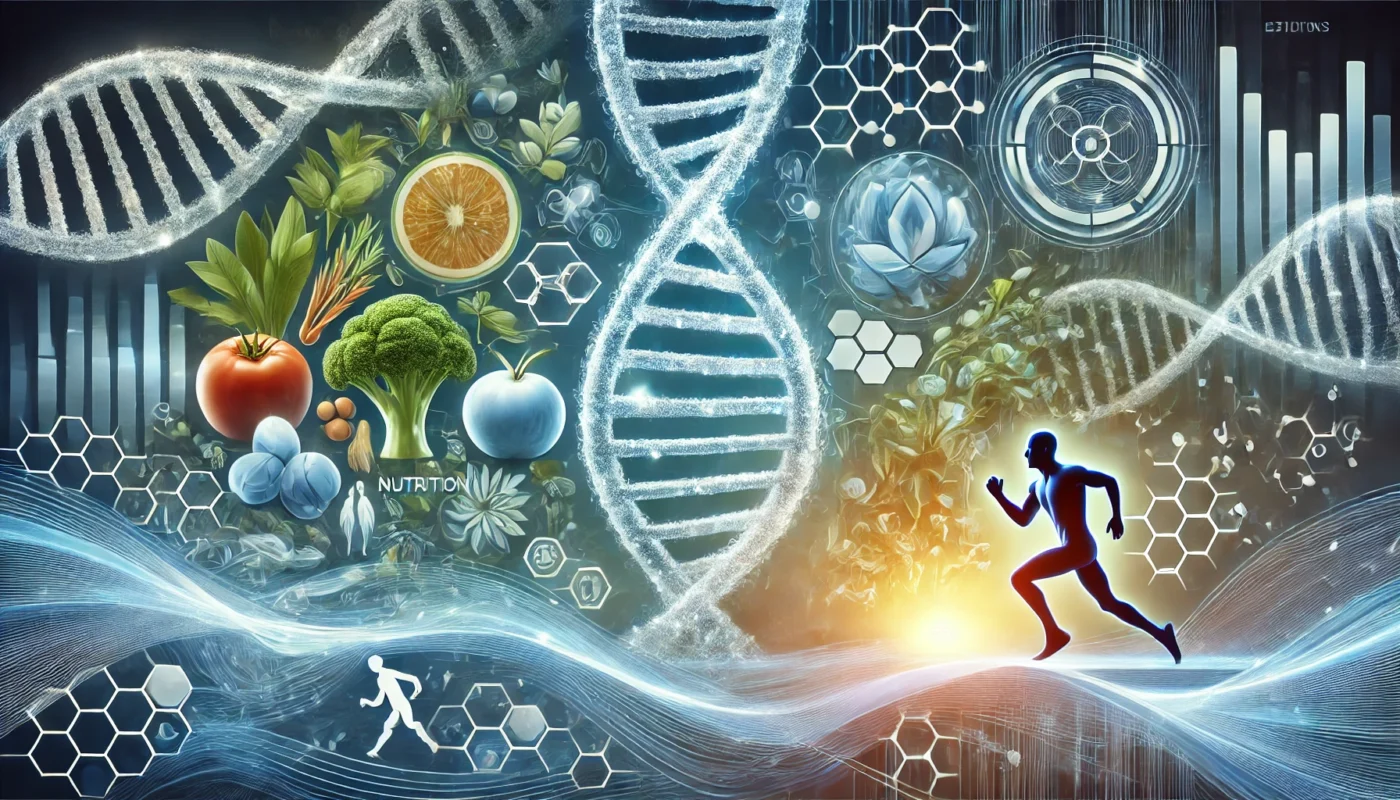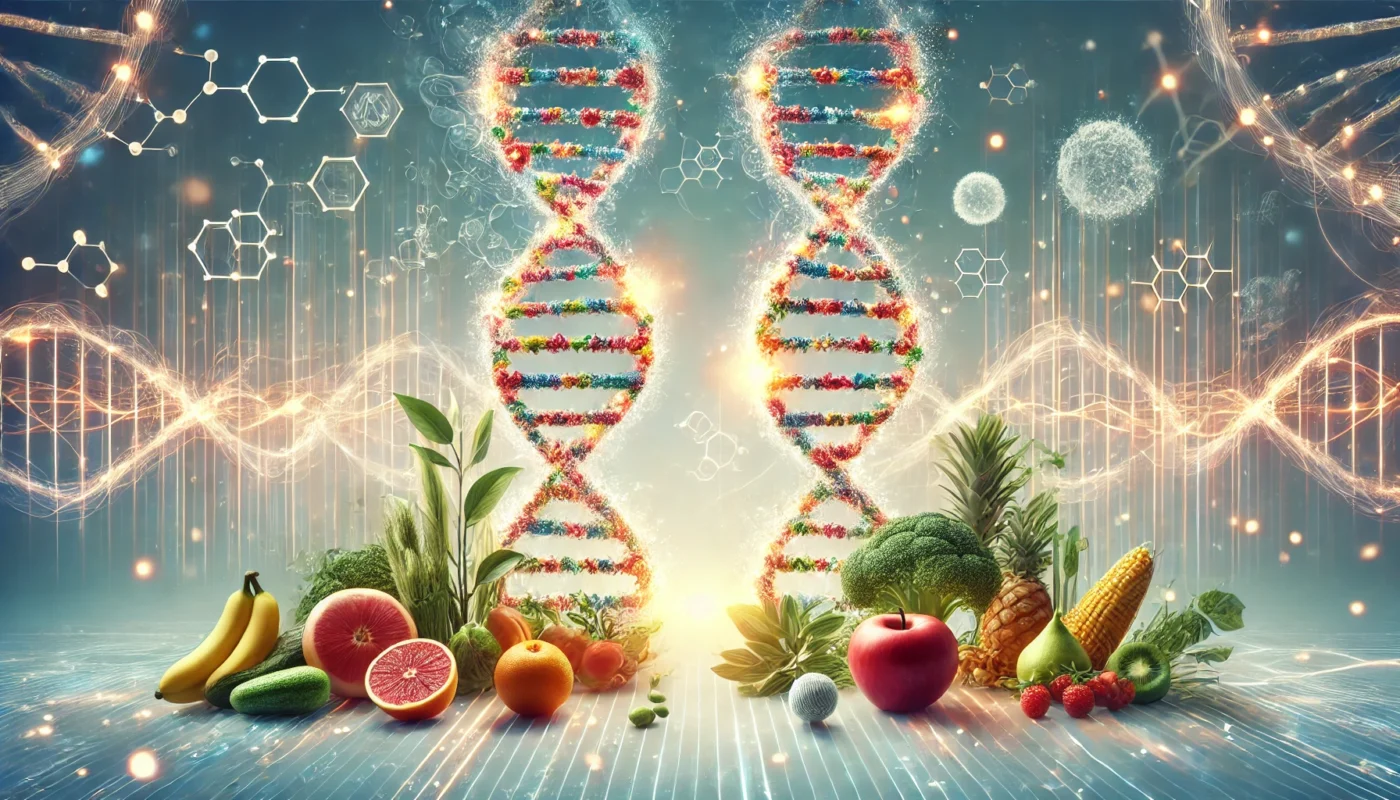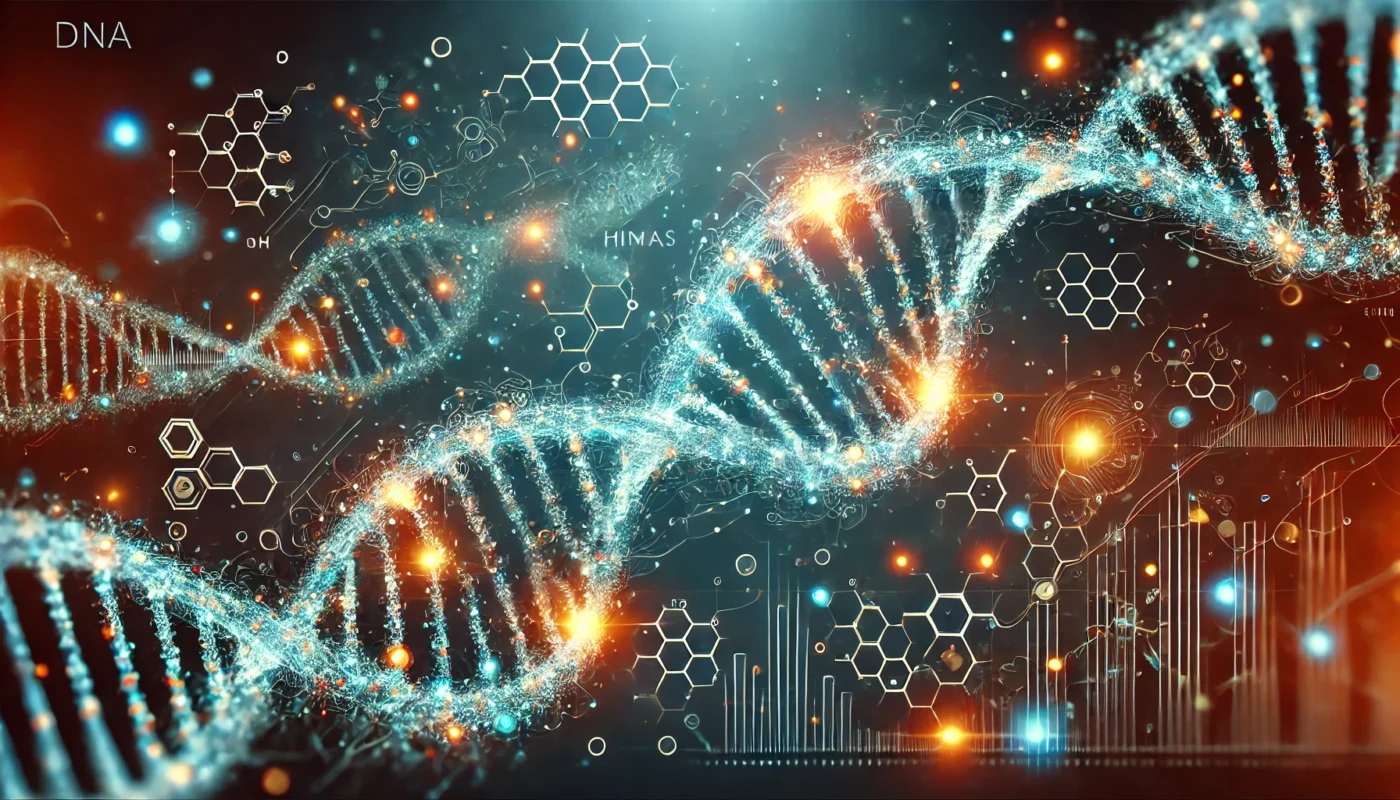Hypertension, or high blood pressure, is one of the most prevalent chronic conditions globally, affecting more than 1.28 billion adults according to the World Health Organization (WHO). While the genetic component of hypertension has long been recognized, recent advancements in the field of epigenetics have highlighted how environmental and lifestyle factors can influence gene expression and, in turn, affect blood pressure regulation. Understanding the interplay between genes and the environment offers exciting opportunities for personalized hypertension management. This article explores the science of and connection between hypertension and epigenetics, and the potential for lifestyle interventions and emerging therapies to positively influence blood pressure.
You May Also Like: The Role of Remote Biosensors in Hypertension Management
What Is Epigenetics?
Defining Epigenetics
Epigenetics refers to the study of changes in gene expression that occur without altering the DNA sequence itself. These changes are influenced by environmental factors, lifestyle choices, and other external stimuli. Epigenetic modifications determine how genes are turned “on” or “off,” affecting the production of proteins that regulate various biological processes.
Key Epigenetic Mechanisms
- DNA Methylation: The addition of methyl groups to DNA molecules, which can silence gene expression.
- Histone Modification: Changes to histone proteins that influence how tightly DNA is wound around them, affecting gene accessibility.
- Non-Coding RNAs (e.g., MicroRNAs): Small RNA molecules that regulate gene expression by targeting messenger RNA (mRNA).
These mechanisms allow the environment to shape how genetic instructions are carried out, influencing health outcomes such as blood pressure regulation.

The Connection Between Hypertension and Epigenetics
Genetic Predisposition vs. Epigenetic Regulation
While genetic predisposition plays a role in hypertension, genes alone cannot fully explain its development. Environmental and lifestyle factors such as diet, physical activity, stress, and exposure to toxins interact with the genome through epigenetic mechanisms, contributing to the variability in blood pressure observed across individuals and populations.
Epigenetic Modifications in Hypertension
- Altered DNA Methylation Patterns:
Research has identified abnormal DNA methylation patterns in genes associated with blood pressure regulation, such as those encoding components of the renin-angiotensin-aldosterone system (RAAS).- Evidence: A study in Hypertension Research (2018) found that increased methylation of the angiotensin-converting enzyme (ACE) gene reduced its expression, impacting blood pressure regulation.
- Histone Modifications and Inflammation:
Epigenetic changes to histones have been linked to chronic inflammation, a key driver of hypertension. Modifying histone acetylation can influence vascular health and oxidative stress.- Evidence: Studies in Circulation Research (2019) highlighted that histone acetylation promotes the expression of pro-inflammatory cytokines, exacerbating vascular damage.
- MicroRNAs and Vascular Function:
Specific microRNAs have been implicated in vascular remodeling and endothelial dysfunction, both of which contribute to hypertension.- Evidence: A study in Nature Medicine (2020) identified miR-155 as a regulator of vascular smooth muscle cell function, directly influencing blood pressure levels.
Hypertension and Epigenetics: Environmental Influences
1. Dietary Patterns
Diet significantly impacts epigenetic regulation of genes involved in blood pressure control.
- Salt Intake: High sodium consumption influences DNA methylation in genes associated with RAAS, exacerbating hypertension.
- Potassium and Magnesium: These nutrients promote healthy epigenetic profiles that support vascular relaxation and reduce inflammation.
- Antioxidants: Polyphenols found in fruits and vegetables, such as flavonoids, modify histone acetylation to combat oxidative stress.
- Evidence: A study in The American Journal of Clinical Nutrition (2019) found that diets rich in antioxidants, such as the DASH diet, improved epigenetic markers of vascular health.
2. Physical Activity
Regular exercise promotes beneficial epigenetic changes that enhance vascular function and reduce blood pressure.
- Mechanism: Physical activity influences histone modifications and upregulates protective genes, such as those involved in nitric oxide production, which relaxes blood vessels.
- Evidence: A randomized controlled trial in Hypertension (2020) demonstrated that individuals engaging in aerobic exercise showed improved DNA methylation profiles in blood pressure-related genes.
3. Stress and Psychological Factors
Chronic stress induces epigenetic changes that activate the hypothalamic-pituitary-adrenal (HPA) axis, increasing cortisol levels and driving hypertension.
- Mechanism: Stress alters DNA methylation in glucocorticoid receptor genes, amplifying the stress response and its effects on blood pressure.
- Evidence: Research in Psychosomatic Medicine (2018) found that individuals with high perceived stress had abnormal methylation patterns in stress-regulatory genes, correlating with elevated blood pressure.
4. Exposure to Toxins and Pollutants
Environmental toxins, such as heavy metals and air pollution, trigger epigenetic changes that impair vascular health and elevate blood pressure.
- Mechanism: Pollutants induce oxidative stress, leading to histone modifications and aberrant gene expression in endothelial cells.
- Evidence: A study in Environmental Health Perspectives (2021) found that exposure to particulate matter altered methylation patterns in genes associated with endothelial function, increasing hypertension risk.

Potential Therapies Targeting Epigenetics in Hypertension
1. Pharmacological Interventions
Emerging drugs targeting epigenetic mechanisms show promise for hypertension management:
- HDAC Inhibitors: Histone deacetylase (HDAC) inhibitors restore healthy histone acetylation patterns, reducing inflammation and improving vascular function. Studies in Circulation (2020) demonstrated that HDAC inhibitors reduced blood pressure in animal models of hypertension.
- DNA Methyltransferase (DNMT) Inhibitors: These agents modulate DNA methylation patterns, reactivating silenced genes that protect against hypertension.
2. Nutritional Epigenetics
Dietary interventions tailored to epigenetic profiles offer a personalized approach to managing hypertension.
- Example: Diets rich in methyl donors, such as folate and vitamin B12, support healthy DNA methylation.
- Evidence: Research in Nutrients (2021) highlighted that a Mediterranean diet improved epigenetic markers of vascular health.
3. Lifestyle-Based Epigenetic Modulation
Comprehensive lifestyle interventions, including diet, exercise, stress reduction, and toxin avoidance, enhance beneficial epigenetic modifications.
4. Gene Editing and Epigenome Editing
Technologies such as CRISPR and epigenome editing hold potential for precise modulation of hypertension-related genes.
- Example: Targeting microRNAs involved in vascular remodeling could prevent hypertension progression.
- Evidence: Studies in Nature Biotechnology (2022) reported success in using CRISPR-based epigenome editing to modify blood pressure genes in preclinical models.

Role of Nutritional Supplements in Supporting Epigenetic Health
In addition to lifestyle changes, supplements can complement hypertension management by promoting beneficial epigenetic modifications. Below are five evidence-based options:
1. Curcumin
Curcumin has anti-inflammatory and antioxidant properties, promoting beneficial epigenetic changes. Research in The Journal of Clinical Hypertension (2020) found that curcumin supplementation improved endothelial function and reduced blood pressure.
2. Magnesium Glycinate
Magnesium supports vascular relaxation and reduces oxidative stress, promoting healthy epigenetic profiles. A study in Magnesium Research (2016) found that magnesium supplementation improved endothelial function and reduced systolic blood pressure.
3. Omega-3 Fatty Acids
Omega-3s combat inflammation and regulate gene expression through histone modifications. A meta-analysis in Hypertension (2018) reported reductions in blood pressure and improvements in epigenetic markers of vascular health with omega-3 supplementation.
4. Coenzyme Q10 (CoQ10)
CoQ10 reduces oxidative stress and modulates gene expression in endothelial cells. Research in Hypertension Research (2007) demonstrated that CoQ10 supplementation lowered systolic blood pressure and supported vascular health.
5. Resveratrol
This polyphenol modulates histone acetylation and protects against vascular damage. A study in The Journal of Nutritional Biochemistry (2019) showed that resveratrol improved blood pressure and epigenetic markers in hypertensive patients.

Conclusion: Hypertension and Epigenetics
The emerging field of epigenetics has revolutionized our understanding of hypertension, revealing how environmental and lifestyle factors can shape genetic expression and influence blood pressure regulation. From diet and exercise to stress management and toxin avoidance, lifestyle interventions hold the potential to positively impact epigenetic mechanisms and reduce hypertension risk. As research progresses, therapies targeting epigenetic pathways, including pharmacological agents and gene-editing technologies, offer exciting opportunities for personalized hypertension management. By integrating these approaches with evidence-based supplements and lifestyle changes, individuals can unlock the potential of epigenetics to promote better heart and vascular health, paving the way for improved outcomes and quality of life.
References
- Hypertension Research. (2018). DNA methylation and hypertension: Mechanistic insights. Hypertension Research. Retrieved from https://www.nature.com/hr
- Circulation Research. (2019). Histone modifications in vascular inflammation. Circulation Research. Retrieved from https://www.ahajournals.org
- The American Journal of Clinical Nutrition. (2019). Diet and epigenetics in hypertension prevention. The American Journal of Clinical Nutrition. Retrieved from https://academic.oup.com
- Magnesium Research. (2016). The role of magnesium in vascular health. Magnesium Research. Retrieved from https://www.springer.com
- Nature Medicine. (2020). MicroRNAs and vascular function in hypertension. Nature Medicine. Retrieved from https://www.nature.com/nm
Key TERMS for this article:
Hypertension, Epigenetics, DNA Methylation, Histone Modification, MicroRNAs, Nutritional Epigenetics, Lifestyle Interventions
Relevant and useful TAGS for this article:
Hypertension Management, Epigenetic Mechanisms, Blood Pressure Regulation, Personalized Medicine, Nutritional Supplements, Stress and Hypertension, Vascular Health, DNA Methylation, Environmental Toxins, Gene Therapy for Hypertension
Important Note: The information contained in this article is for general informational purposes only, and should not be construed as health or medical advice, nor is it intended to diagnose, prevent, treat, or cure any disease or health condition. Before embarking on any diet, fitness regimen, or program of nutritional supplementation, it is advisable to consult your healthcare professional in order to determine its safety and probable efficacy in terms of your individual state of health.
Regarding Nutritional Supplements Or Other Non-Prescription Health Products: If any nutritional supplements or other non-prescription health products are mentioned in the foregoing article, any claims or statements made about them have not been evaluated by the U.S. Food and Drug Administration, and such nutritional supplements or other health products are not intended to diagnose, treat, cure, or prevent any disease.

